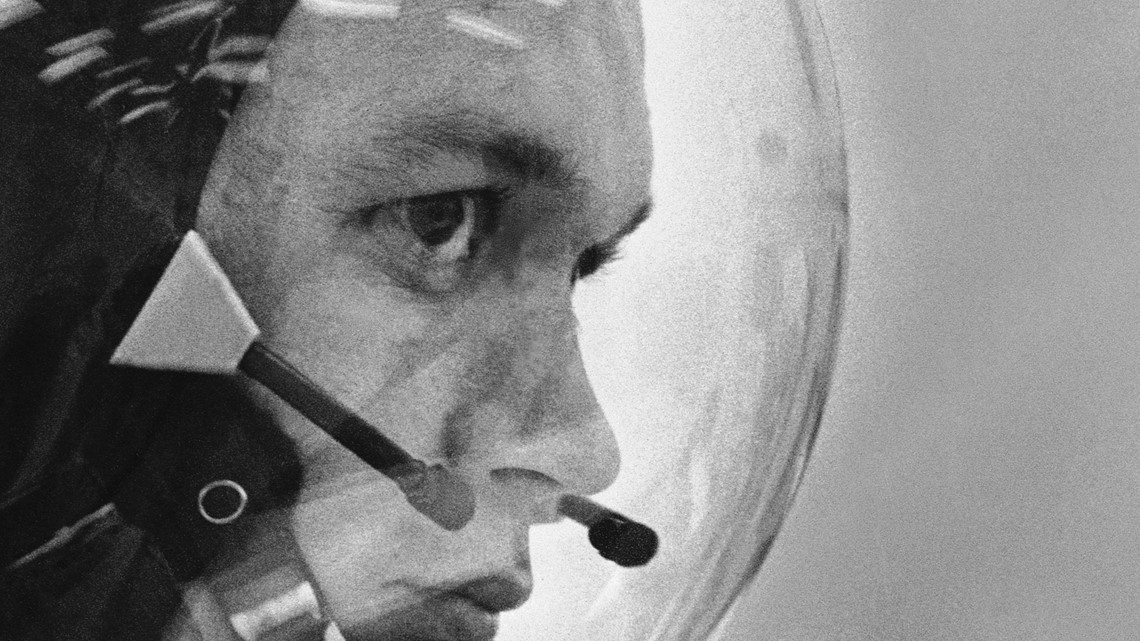WASHINGTON — Michael Collins, the one astronaut who did not step foot on the moon during the famed Apollo 11 mission, has died. He was 90.
In a statement, Collins's family said he passed away Wednesday "after a valiant battle with cancer."
"He spent his final days peacefully, with his family by his side," the statement reads. "Mike always faced the challenges of life with grace and humility, and faced this, his final challenge, in the same way. We will miss him terribly."
Collins was born on Halloween in 1930 in Rome, Italy, NASA said. He graduated from St. Albans School in Washington, D.C., and later from West Point. He chose a career as a test pilot for the Air Force, mainly testing fighter jets.
After joining NASA in 1963, Collins piloted the Gemini X mission which successfully completed docking with one Agena target vehicle, switching to a different orbit, then connecting with a second Agena. Collins also completed a pair of spacewalks on that mission.
The crowning achievement of Collins' space career was as command module pilot on Apollo 11. As Neil Armstrong and Buzz Aldrin landed on the moon, Collins was responsible for making sure they could dock with the Columbia command module for the return trip home.


Collins left NASA six months after that mission and retired with the rank of Major General from the Air Force. He went on to become the director of the Smithsonian National Air & Space Museum from 1971-1978 before becoming the Undersecretary of the Smithsonian Institution.
Collins has also written multiple books including "Carrying the Fire," "Flying to the Moon and Other Strange Places," and "Liftoff: The Story of America's Adventure in Space."
Collins is a recipient of the Presidential Medal of Freedom, the nation's highest civilian honor. He also earned the Air Force Command Pilot Astronaut Wings and the Air Force Distinguished Flying Cross.
NASA Administrator Steve Jurczyk released the following statement about Collins passing:
“Today the nation lost a true pioneer and lifelong advocate for exploration in astronaut Michael Collins. As pilot of the Apollo 11 command module – some called him ‘the loneliest man in history’ – while his colleagues walked on the Moon for the first time, he helped our nation achieve a defining milestone. He also distinguished himself in the Gemini Program and as an Air Force pilot.
“Michael remained a tireless promoter of space. ‘Exploration is not a choice, really, it’s an imperative,’ he said. Intensely thoughtful about his experience in orbit, he added, ‘What would be worth recording is what kind of civilization we Earthlings created and whether or not we ventured out into other parts of the galaxy.’
“His own signature accomplishments, his writings about his experiences, and his leadership of the National Air and Space Museum helped gain wide exposure for the work of all the men and women who have helped our nation push itself to greatness in aviation and space. There is no doubt he inspired a new generation of scientists, engineers, test pilots, and astronauts.
“NASA mourns the loss of this accomplished pilot and astronaut, a friend of all who seek to push the envelope of human potential. Whether his work was behind the scenes or on full view, his legacy will always be as one of the leaders who took America's first steps into the cosmos. And his spirit will go with us as we venture toward farther horizons.”

